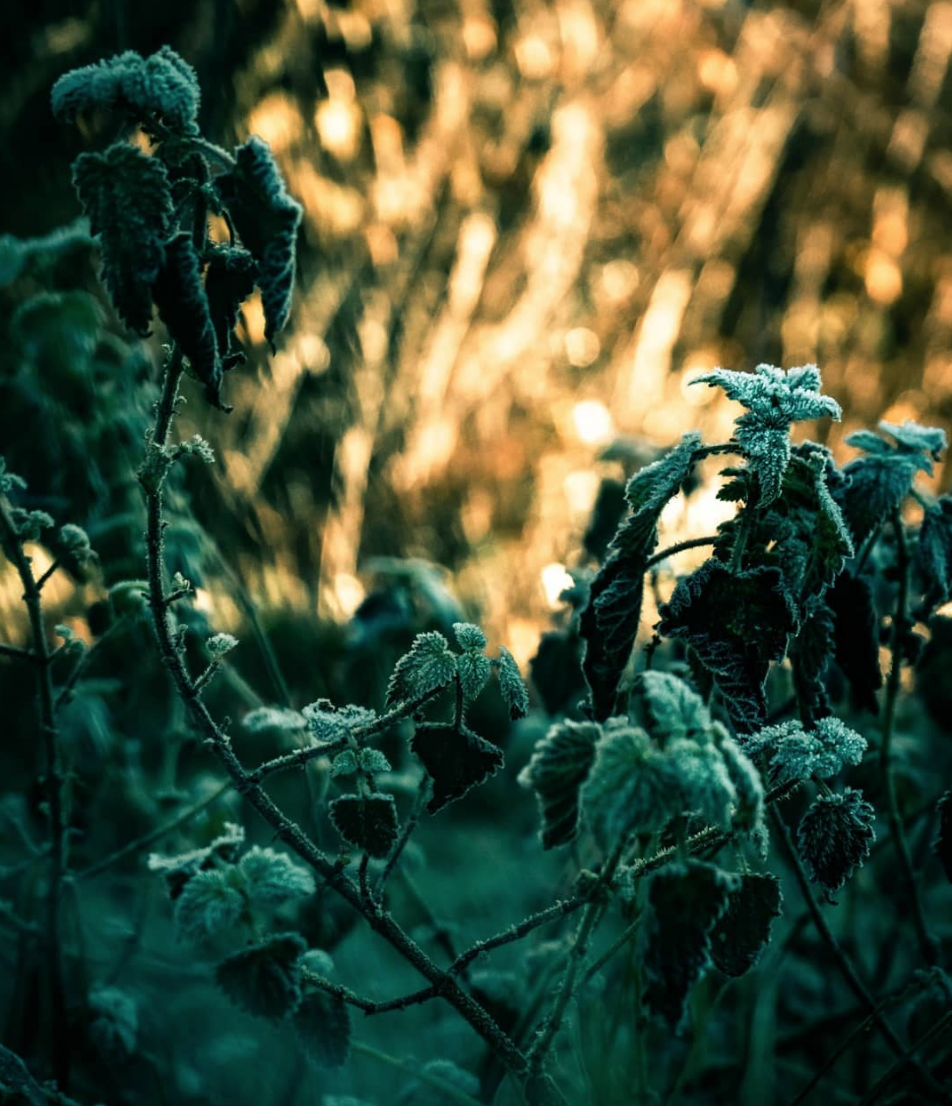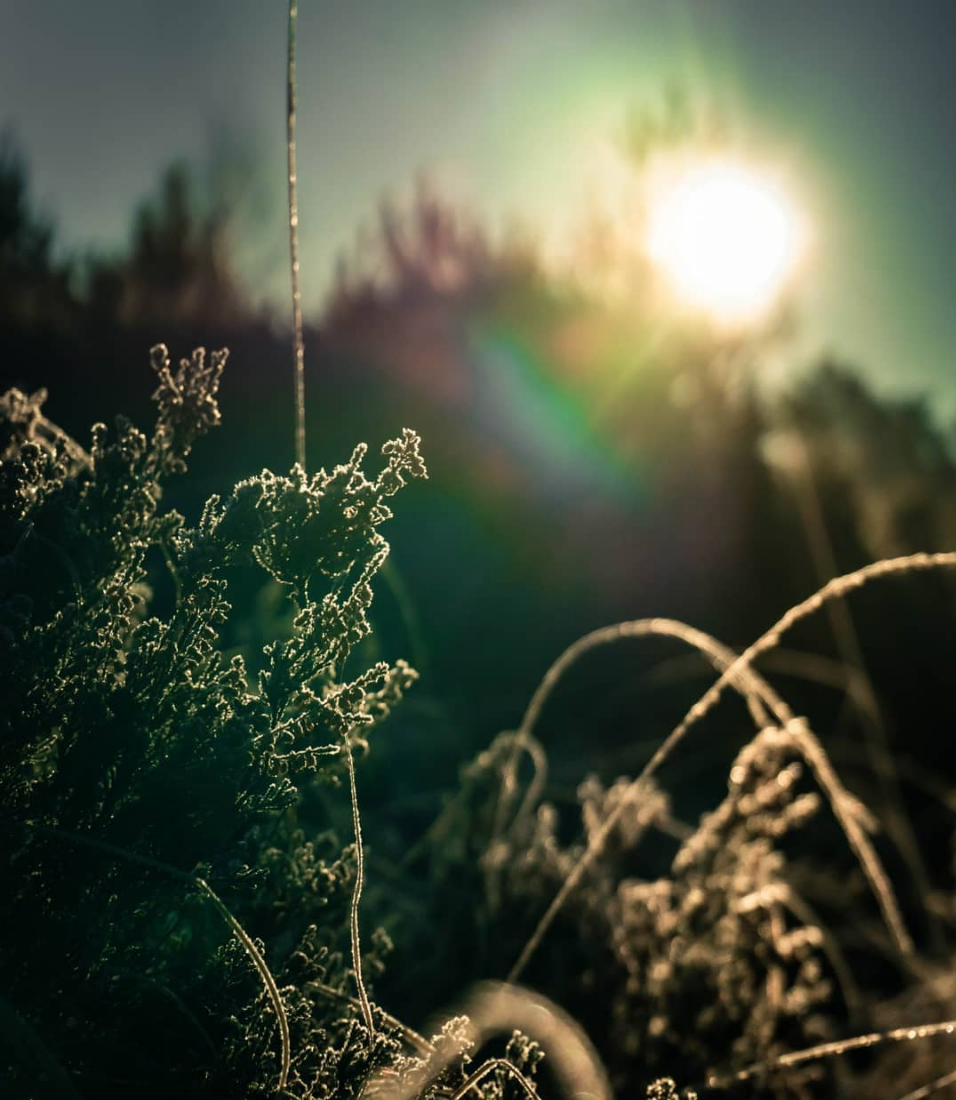Interview Ilze Millere
In the upcoming weeks I’ll be interviewing several filmmakers about their work and how they’re incorporating sustainability into it. This first week I’m talking to Ilze Millere of Elementi Media.
Elementi Media is an independent film production company run by Ilze and her partner in life and work Carl Bradshaw. They’ve been making several films together that explore themes of complexities of the human mind and often use poetic, dreamy and surreal film elements.
Ilze and I have never actually met in real life, but we bonded over our love for nature and films when we stumbled upon each other’s instagram accounts. Ilze is based in the South of England and has been working on her first feature called Limerence. Elementi Media is aiming to make their films as sustainable as possible right now, and their future goal is to eventually have zero-waste sets.
I love talking to someone who is in the middle of their zero-waste journey because there is no point in pretending we all do things perfectly. It is so important to talk openly about achievements as well as about what difficulties they come across along the way.
Can you tell me more about your love for nature?
“Whenever I have a chance, I go for a walk in the forest, or at least a park, and having nature nearby is a very important factor to where I want to live. While studying, I forgot my love for nature and ended up spending years in an urban setting and indoors which was one of the reasons that led to many mental health problems and encouraged me to make some changes and reconnect with nature, and I’ve been feeling so much happier since then. My love for nature is also evident in my films – we’re currently working on our first feature film Limerence, which is all about the power and magic of forests and the beauty and symbolism of flowers, and I’m always excited to work on outdoor shoots in nature.
“I love nature so much – it is my source of energy and relaxation, inspiration and motivation. I’ve always been a nature child, probably because I grew up in Latvia where most of the country is covered in forests and where I’d spend my every free time in the woodlands, meadows or the countryside.”
What is the importance of the film industry becoming more sustainable?
“The film industry needs to be more sustainable simply because every aspect of our life should be as sustainable as possible to ensure that we all live in harmony with nature and don’t harm the environment. Besides, the film industry can be incredibly wasteful. It is a fast-paced industry with huge groups or people and massive amounts of equipment and materials. Even on small, independent film shoots, I’ve seen productions where lunch breaks leave behind countless plastic bottles and food packaging, where props are bought cheaply, break and are thrown away, where too much paperwork is printed, where so much waste is created and left behind – and I can’t even imagine how much worse it gets on large-scale film productions. Films are enjoyed globally by all types of people, and setting an example of making them with sustainable methods, would be an inspiration for everyone else to try and live in a way that is a bit less wasteful.”
What are you doing to make your films in a more sustainable way?
“Even before I was passionate about sustainability, I took a few steps to make my sets sustainable, simply because the sustainable option is often the cheapest one. I’ve always sourced my costumes and props in 2nd-hand shops which helps me avoid fast-fashion. If I can’t find something in a 2nd hand store, I look for ethical brands or for independent artists – Etsy is a wonderful place to find unique handmade props and support artists. I also make sure to never throw away costumes or props after a production – I keep what I like and gift the rest to the team or donate it. I also try to reduce food waste and plastic waste from packaging by preparing and bringing my own food for lunch breaks, and I use public transport where possible or make sure to fill up all the cars that we have available. Since learning more about sustainability, I’ve also reduced our paper waste by only using recycled paper and printing as little as possible and instead using digital copies. I’ve started to make notes about sustainability on call sheets and informed my team about my goals for a greener set, as well as done more research into where we can save energy, what we can recycle and how we can reduce waste on every specific production.”
What were the sustainability challenges when you shot the first part of your feature film Limerence?
“Last November, we filmed the first block of our feature film Limerence. We took lots of sustainability steps in the pre-production for this film. Most of our costumes were from 2nd-hand shops and were altered by our costume designer with handmade elements. All props were from charity shops or made specifically for the film by independent artists or me. Our make-up artist used bamboo cotton buds and reusable make-up pads to remove actors’ make-up. I did my best with energy conservation by always switching off lights when not needed. All equipment had rechargeable batteries and we also kept hot water off most of the time. Most people travelled with public transport or carpooled, and for the others we rented an Airbnb in a walking distance from the set. We also had green tips and facts on our call-sheets. However, having a green set with a very limited budget and restricted time-period, filming in an Airbnb was a real challenge, especially when we didn’t have anyone else designated to keep the set green other than me and I was already so busy with directing.
The thing that didn’t work the most was food waste management. We were meant to hire out a catering company to reduce food and packaging waste but we couldn’t afford it in the end, so there was a lot of food packaging from local shops and lots of disposable coffee cups. Luckily, we reduced some of the waste on days when we or my mum brought homemade food and we could use plates and cutlery from the Airbnb. We also weren’t able to recycle as we were filming in a small house with a tiny kitchen with one small bin and the whole location was packed with equipment, costumes and props, so we didn’t have enough space for multiple bins.”
How do you talk to your cast and crew about sustainability on set?
“To be honest, I don’t talk about sustainability to my team too much. I just let them know as soon as the conversations about the project start that I will aim to make the film as sustainable as possible and give them a little rundown on how it will be done. Later, we also prepared a sustainability memo with some more information on the topic. To my surprise and excitement, a few of my team members have approached me with questions about sustainable living because they wanted to learn more. While filming Limerence, my first AD was very helpful when she tried to sort out the waste and consume energy on set. Also, there was a moment when one of my actresses apologised for using a disposable coffee cup and then promised to take it back to the coffee shop where it would be recycled, which I didn’t even think to mention. So, even though I try to not force my values on anyone too much (at least not yet, because I simply don’t have the resources to have a truly waste-free film set), I can see that my team is aware of my goal and they do what they can to help, and that means a lot to me because I know that I’ll have the support when eventually my sets have a lot more sustainability rules.”
What are your plans for sustainability on the next shoots?
“My plans are just to keep doing what I’m doing and to make every set greener step by step and to slowly find a way to tackle the areas that are a challenge right now. I want to always have a sustainability agent on set to help me keep an eye on the green aspects while I concentrate on bringing the film to life. I’m also planning to continue educating myself and to take a few courses on environment, sustainability and sustainable filmmaking. Finally, I hope to find ways to secure funding specifically on set with a reusable bottle or cup and to spend more money towards a greener production – money that currently sadly has to go towards other areas to make the film.





